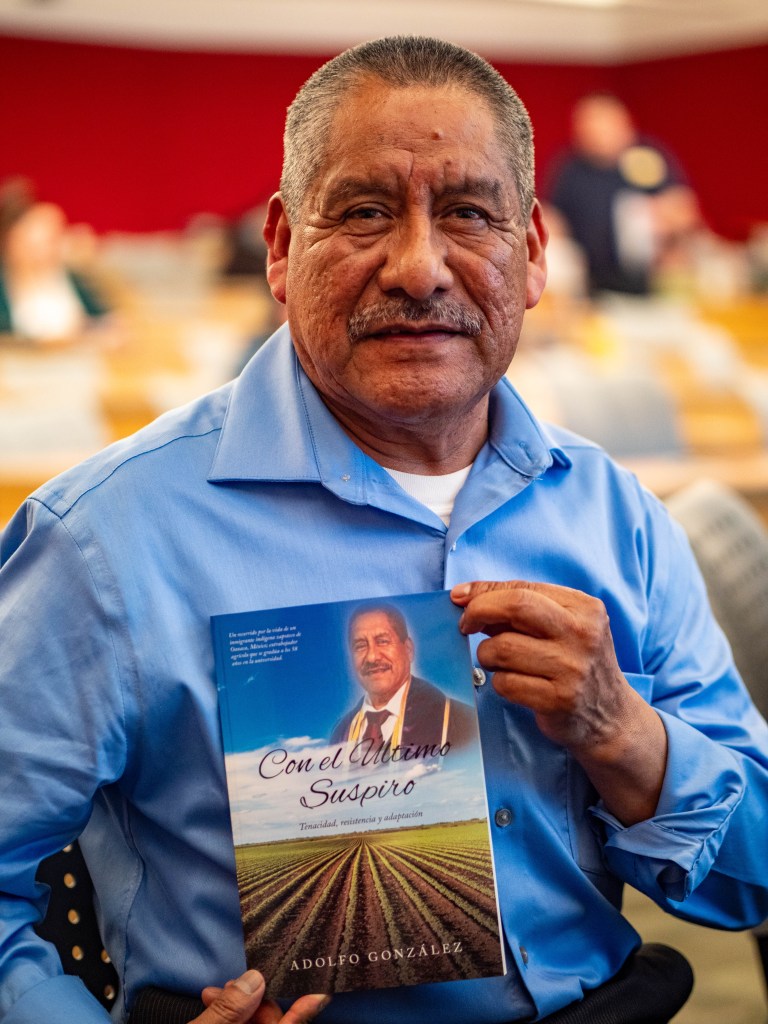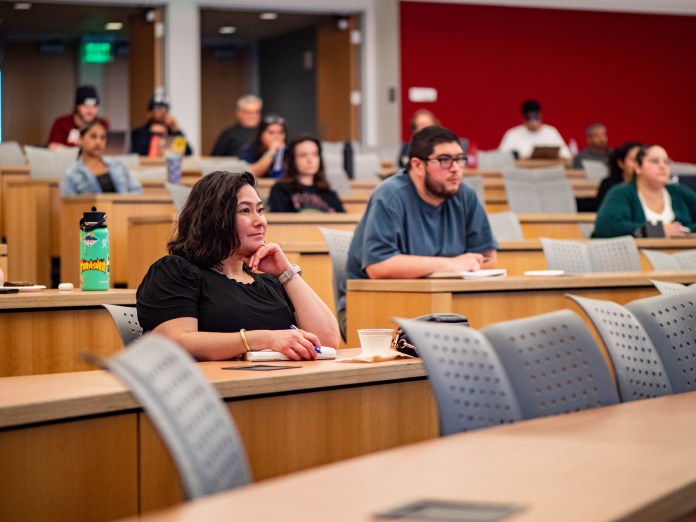When Adolfo González arrived in the United States from Mexico he didn’t speak English.
His primary language was Zapotec, an indigenous language with its roots in Oaxaca. He learned English as a third language at Salinas Adult School, where he received his general education diploma.
“When we hear some people talking, [in] his or her indigenous language, admittedly, we give discrimination, prejudice and segregation to these people,” Gonzalez said. “So they tend to avoid talking in their indigenous language or even in Spanish.”

And so there is a fear that those indigenous languages will be lost. According to Dustin Wright, chair of CSUMB’s Department of World Languages and Cultures, preserving indigenous languages not only “gives people access to their past, to their own histories and to their own stories … it gives us a different and necessary window into understanding the world.”
On Thursday, April 11, Cal State Monterey Bay (CSUMB) celebrated its sixth Annual Festival of Languages, Cultures, and Ideas with this year’s speaker series highlighting the importance of preserving indigenous languages to culture and society.
Around 50 students, professors and community members filled the Tanimura and Antle Family Memorial Library amphitheater in addition to 30 more participants who attended over Zoom.
“I think students seem to be interested in understanding indigenous languages in part because indigenous languages are threatened. The United Nations considers them endangered in many places,” Wright said.
Thursday’s guests, González and Anne Fountain spoke about “Indigenous America in our Community and in the Spanish Classroom.” Following the spirit of appreciation for multilingual education, their presentations were done using a combination of English and Spanish. In addition, González, an indigenous Zapotec, taught participants some key phrases from his native language.
Gonzales said recounting his story at CSUMB was particularly significant because, despite many challenges, he eventually studied Spanish at CSUMB, graduating with honors. “When I have the time to talk to people like you, I tell them my story … if you have a dream, please don’t pay attention to other people. You can do everything,” said González.
Fountain, meanwhile,explored the historical context and cultural implications of the suppression of indigenous languages.
“Indigenous languages were confronted with a big challenge when the conquest and colonization began … there was prejudice, assuming [indigenous languages] weren’t as good as Europe’s,” Fountain said. While this prejudice continues to this day, she was hopeful given the amount of young students in attendance learning the importance of preserving indigenous languages.
Fountain expressed this hope, saying “I think young people are not burdened by some of the prejudice in the past. I think that it’s wonderful.”

